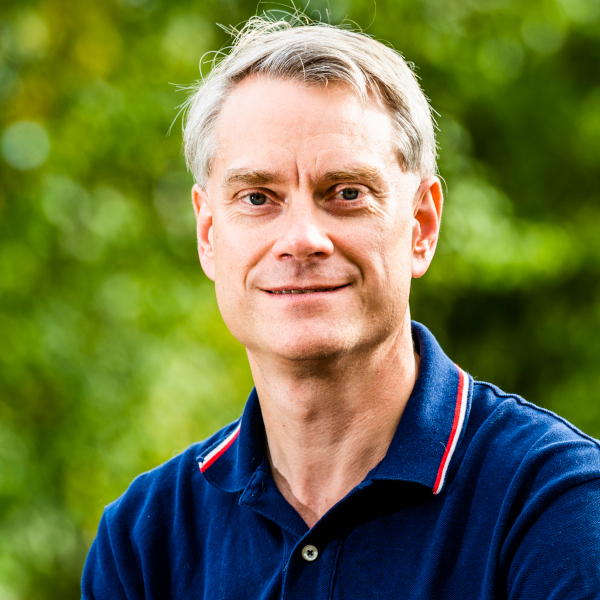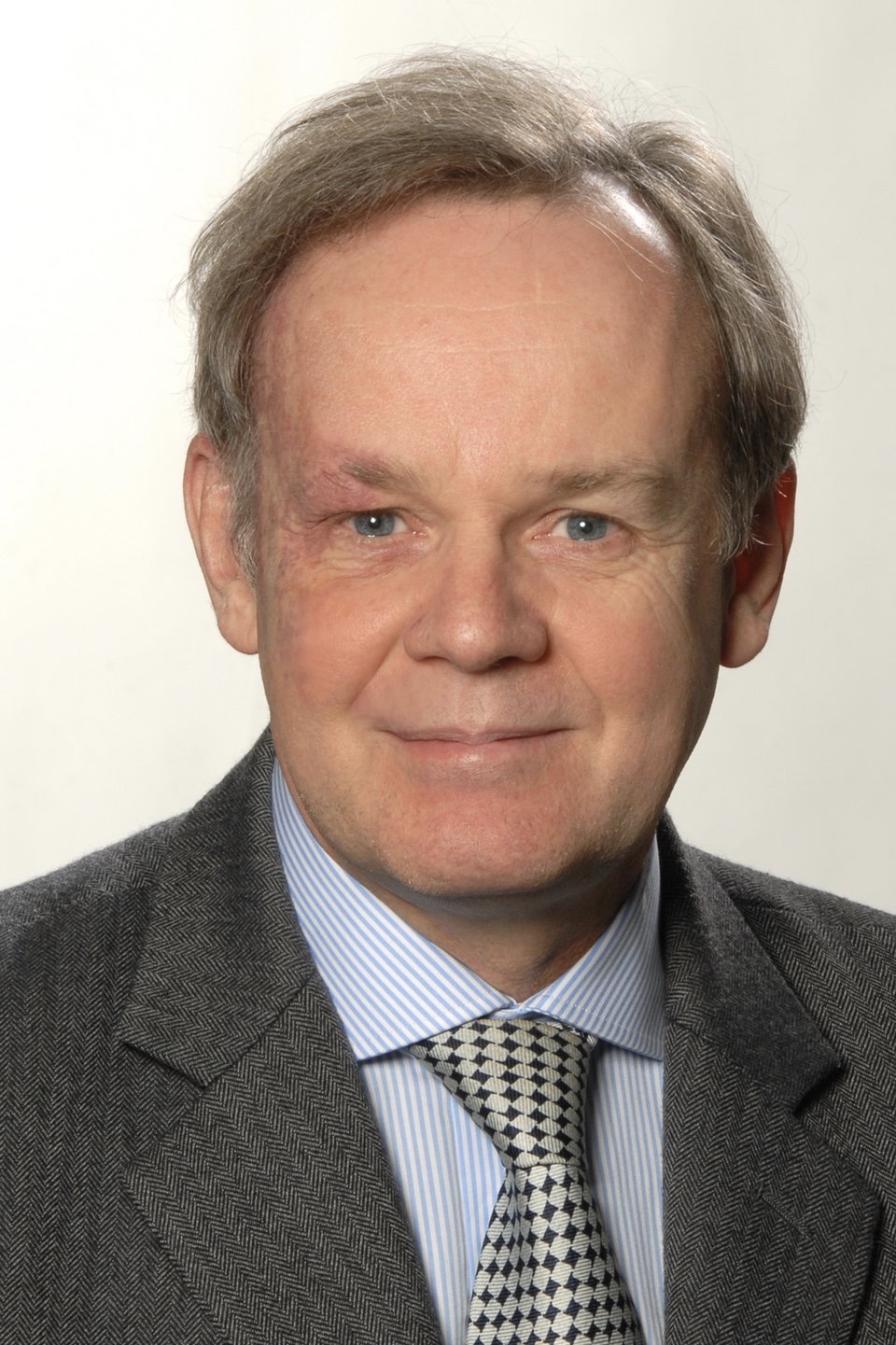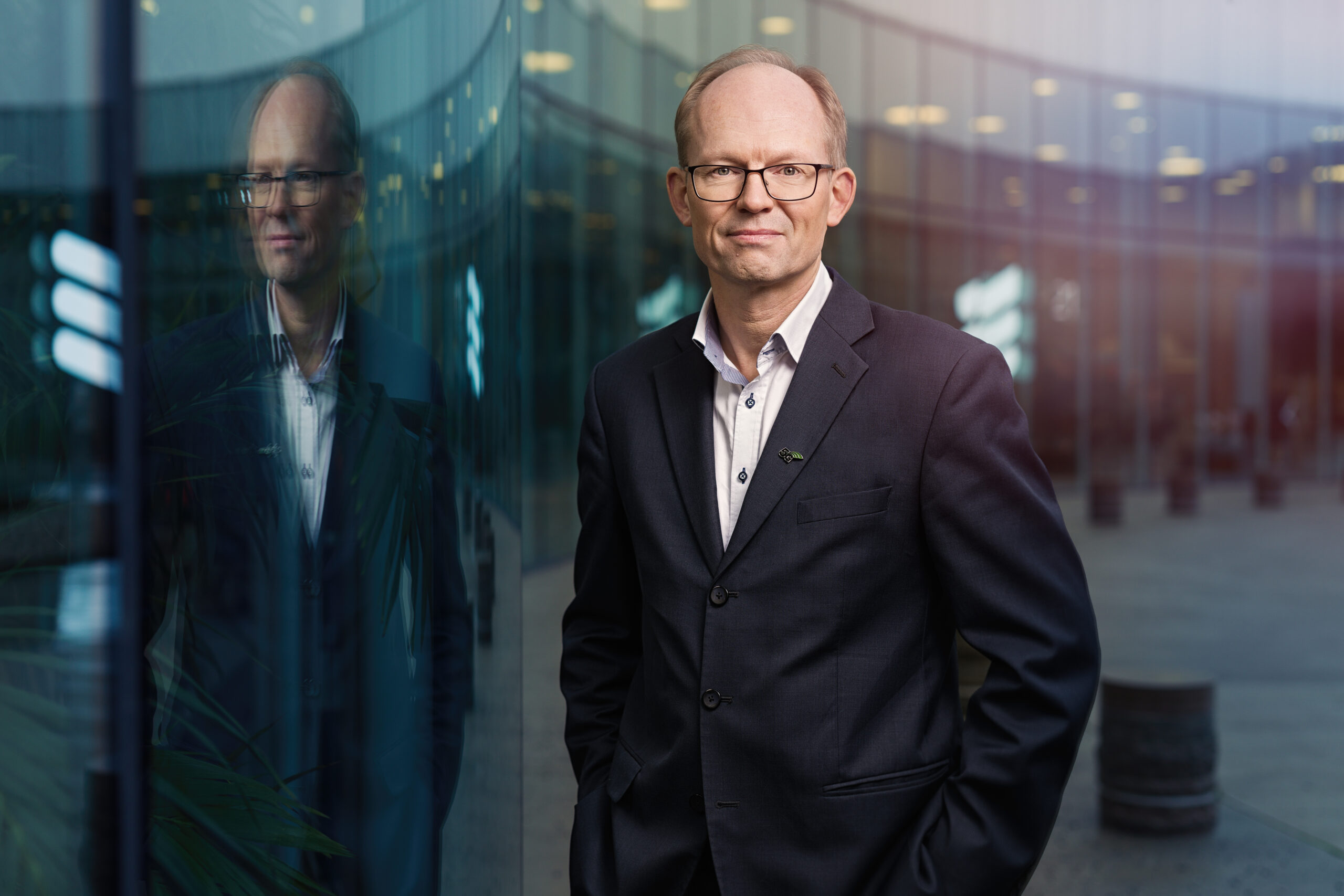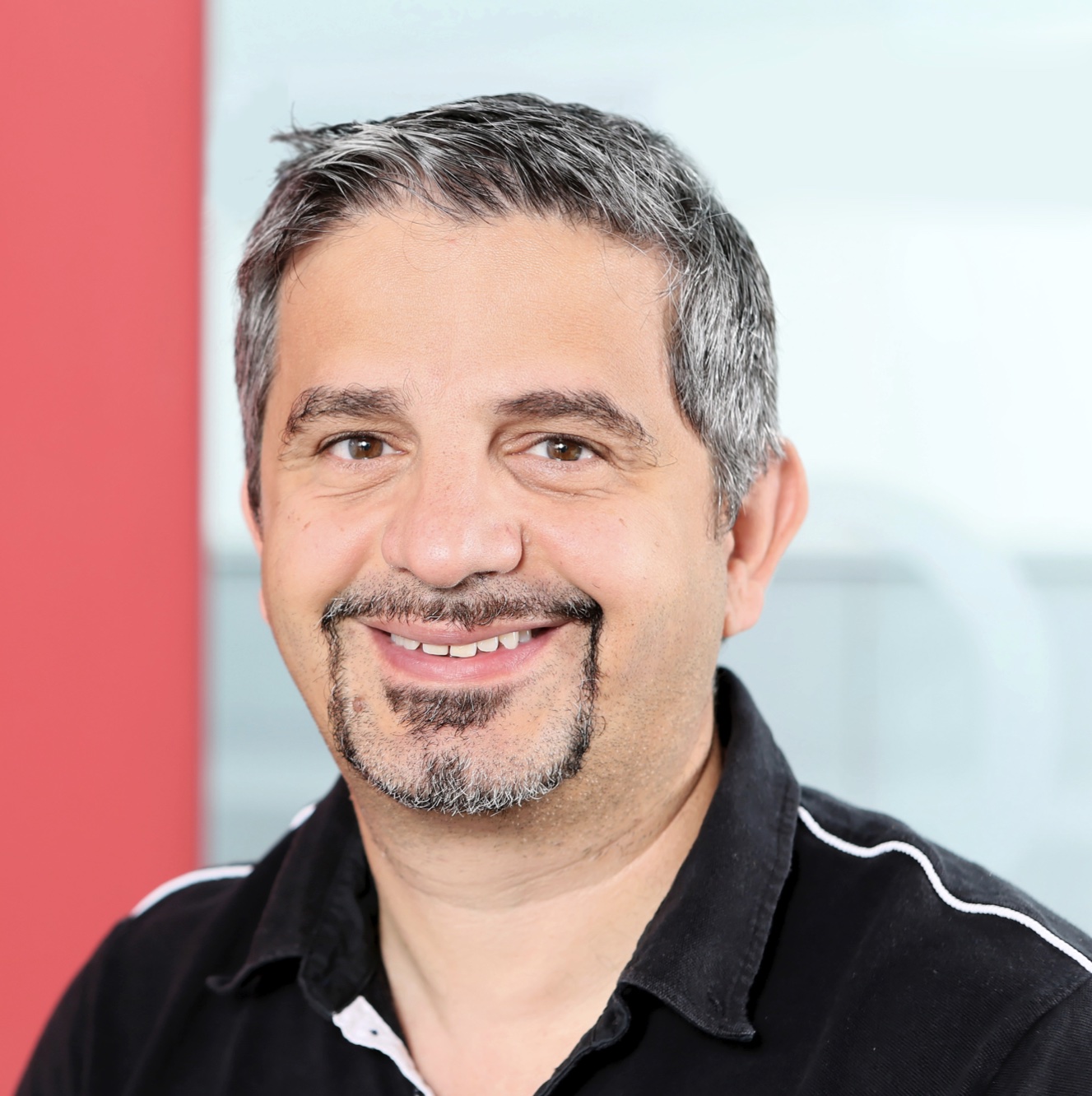Day 1 – October 26, 2021
10:00 - 10:30
Aulan/Kårhuset
Registration & Coffee
10:30 - 11:00
Aulan/Kårhuset
ELLIIT: News and overview
Erik G. Larsson, ELLIIT Director

11:00 - 12:15
Aulan/Kårhuset
E-Huset
Poster session 1:
New ELLIIT projects, Calls B+C
Chair: Jürgen Börstler
Part I: 1-minute teaser presentations (Aula)
Part II: 45 minutes to visit the posters (E-huset)
Coffee served during Part II.
12:15 - 13:15
Kårhuset
Lunch
13:15 - 14:15
Aulan/Kårhuset
Keynote: Digitisation and Automation of Production Technologies
Prof. Dr.-Ing. Ulrich Berger, BTU Cottbus, Germany
Chair: Volker Krueger
Abstract
With the support of a governmental funded infrastructure initiative (>10M€), CoAT conceptualised and implemented an SoA Industry 4.0 Model Factory at BTU. The general purpose of this initiative was to create a novel relay and transfer center between the BTU/CoAT and the regional industry, fostering the reflection and uptake of new technologies, both by BIG and SME companies. The model factory is a catalyst by interconnecting with the rapidly growing S&T network and other facilitating entities in North and East Germany. After initial success, the Model Factory gained vast positive momentum, and further improvements are in planning. Today, our affiliated network encompasses 500+ companies and 50+ S&T network partners, covering also social partnership collaboration between unions and enterprise associations. Following COVID restrictions, all physical meetings, conferences, and visits were canceled or limited, it was developed and realized in due time a set of virtual formats for our clients and stakeholders. One of these formats, the Industry 4.0 Lab Walk, gained vast interest and will be prominently presented for the ELLIIT Annual Workshop 2021. It will provide attractive showcases, valid background information, and deep insights into our latest developed technologies and performed under real- live conditions. In particular, we will highlight in the ELLIIT Lab Walk the following exhibits:
- Manual Assembly Activity Recognition for Automated Robot Sequence Generation: The application is developed for the final round of the KUKA Innovation Award 2021 to teach a robot by manually performing an assembly process using data gloves.
- Object Detection for Robot Task Planning in Jet Engine Assembly: An R-CNN detects assembly objects in a collaborative workspace and chooses an assembly strategy.
- Multi-Parametric Predictive Maintenance in Milling Processes: Within a complex milling machine-tool operation, multi-parametric force, acoustic, and vibration parameters are recorded and processed in-situ and real-time and further classified to determine the width of wear land of the tool and eventually the tool change schedule.
- Natural Language Processing (NLP) by unsupervised multilingual sentence boundary detection in manual and instruction compounds: The NLP tool splits the original text into sentences by unsupervised multilingual sentence boundary detection and finds the most important sentences in the original text.
- Augmented Reality (AR) based troubleshooting in PLC controlled manufacturing cells: The scalable PLC to Android data transfer system allows AR-based troubleshooting and error correction in real-time on mobile or wearable devices.
The Live Lab walk will also reflect the industrial impact created so far and some outlook perspectives for future investments and S&T activities.
Biography
Diploma (Mechanical Engineering, University of Stuttgart); Doctorate (Production Technology, University of Bremen). Since 2001 Full Professor, Chair of Automation Technology, Brandenburg University of Technology Cottbus (40+ staff members). https://www.b-tu.de/en/fg-automatisierungstechnik/
Founder and Director of the SME Technology Transfer Center Modern Industry Brandenburg (since 2015). https://www.imi4bb.de/home
General Manager of the German SME Competence Center Industry 4.0 Cottbus (since 2017). https://www.kompetenzzentrum-cottbus.digital
Comprehensive technical and scientific expertise in robotics, automation, and Industry 4.0. Member of the Digital Advisory Council of the Federal State of Brandenburg (2018-2020). Visiting Professor at Denmark Technical University, Mechanical Engineering (2009). Appointment as Adjunct Professor Smart Production at Aalborg University (2016, continued 2021).
Previous career steps as: Project Manager in Automotive Production at the Robert Bosch Group, Stuttgart; Technical Director at BIBA Institute, Bremen; Chief Engineer at Institute of Material Science Bremen; Professor and Director, Manufacturing Technologies, University of Lüneburg. Appointments as project evaluator, advisor and reviewer for German and EU S&T programs (since 1994). Supervisor and co-supervisor of 35+ doctorates and 150+ BSc/MSc theses. Author & co-author of 200+ scientific and technical publications.

14:15 - 15:15
Aulan/Kårhuset
Research Infrastructure Initiatives
Chair: Fredrik Tufvesson
List of presentations
1) Visionen2.0 (Axehill / Felsberg)
2) Joint Autonomous Systems Lab (Olofsson / Frisk)
3) LTH Robotics Lab Infrastructure (Krueger / Robertsson)
4) Scalable DevOPs (Heintz / Lindsten)
5) Edge computing testbed (Kihl)
6) Access to Visualization Infrastructure, Software, and Competence (Hotz)
7) LISA – Large Intelligent Surface testbed with remote Access (Edfors)
8) Research Platform for 6G, Sub-THz Radar, and Beyond (Fhager / Sjöland / Sjöberg / Lau)
15:15 - 15:35
Aulan/Kårhuset
Presentation of ELLIIT Gender Projects
Chair: Görel Hedin
“Building a community”, by Sandra Pott, Sara Maad Sasane, and Carina Geldhauser
“Women and mathematics” by Sara Maad Sasane and Carina Geldhauser
15:35 - 15:45
Kårhuset
Coffee break
15:45 - 16:10
Aulan/Kårhuset
Industry keynote:
6G – Enabling the cyber-physical continuum
Magnus Frodigh, Vice President and Head of Ericsson Research
Chair: Inger Erlander Klein
Abstract
Today’s networks have formed an intelligent digital infrastructure offering endless possibilities to individuals, enterprises, and governments worldwide. The smartphone has become our primary internet device, and with the rollout of 5G the network platform will enable robust new solutions to a wide range of social, environmental, and economic challenges. Still, we are only at the beginning towards a next paradigm shift formed by a combination of emerging technology trends. That paradigm shift will take us to the 6G era.
Our vision is that 6G will enable a cyber-physical continuum blending the physical real world of sensing, action and experience with a programmable digital representation of that same world. We will be able to experience human sensory experiences conveyed digitally over distances, as “if we were there” physically. Intelligent machines (or AIs) will cooperate and interact in the digital world over real-world connections. The 6G network platform will provide intelligence and full synchronization in this cyber-physical continuum, enabled by limitless connectivity, network compute fabric, trustworthy systems and cognitive networks.
Biography
Dr. Magnus Frodigh has been Vice President and Head of Ericsson Research since 2018. Dr. Frodigh was Research Area Director for Network Architecture and Protocols at Ericsson Research from 2007 to 2018 with responsibility for driving long-term technology leadership research in the areas of network architecture and protocols comprising radio, transport and core networks, including network management.
Dr. Frodigh joined Ericsson in 1994 and has since held various key senior positions within Research & Development and Product Management, focusing on 2G, 3G, 4G and 5G technologies, and expanding collaborations between with both academia and industries. He holds 29 patents.
Dr. Frodigh was born in Stockholm, Sweden, in 1964. He holds a Master of Science degree from Linköping University of Technology, Sweden and earned his Ph.D. in Radio Communication Systems from Royal Institute of Technology in Stockholm, Sweden.
Dr. Frodigh is adjunct Professor at Royal Institute of Technology in Wireless Infrastructures since 2013.

16:10 - 17:30
Aulan/Kårhuset
E-Huset
Poster session 2: Post-doc projects (Call A)
Chair: Alexey Vinel
Part I: 1-minute teaser presentations (Aula)
Part II: 45 minutes to visit the posters (E-huset)
Beverages and snacks served during Part II.
19:00
Grand Hotel
Dinner
Day 2 – October 27, 2021
9:00 - 10:00
Aulan/Kårhuset
Keynote: Chordal Codes for Chip-to-Chip Communication
Prof. Amin Shokrollahi, EPFL Lausanne, Switzerland
Chair: Michael Lentmaier
Abstract
Modern electronic devices consist of a multitude of IC components: the processor, the memory, the RF modem and the baseband chip (in wireless devices), and the graphics processor, are only some examples of components scattered throughout a device. The increase of the volume of digital data that needs to be accessed and processed by such devices calls for ever faster communication between these IC’s. Faster communication, however, often translates to higher susceptibility to various types of noise, and inevitably to a higher power consumption in order to combat the noise. This increase in power consumption is, for the most part, far from linear, and cannot be easily compensated for by Moore’s Law. In this talk I will give a short overview of problems encountered in chip-to-chip communication, and will advocate the use of novel coding techniques to solve those problems. I will also briefly talk about Kandou Bus, and some of the approaches the company is taking to design, implement, and market such solutions.
Biography
Amin Shokrollahi finished his PhD at the University of Bonn in 1991 where he was an assistant professor until 1995. From 1995 to 1998 he was at the International Computer Science Institute in Berkeley. In 1998 he joined the Bell Laboratories as a Member of the Technical Staff. From 2000 to 2009 he was the Chief Scientist of Digital Fountain. In 2003 he joined EPFL as a full professor of Mathematics and Computer Science. In 2011 he founded the company Kandou Bus which designs fast and energy efficient chip-to-chip links.
Dr. Shokrollahi’s research covers a wide range of topics from pure mathematics to electronics. He has 200+ publications, and 150+ pending and granted patent applications. An IEEE Fellow, Dr. Shokrollahi’s honors include several IEEE Paper Awards, the IEEE Eric E. Sumner Award, the Advanced Research Grant of the ERC, the IEEE Hamming Medal, the Mustafa Prize, and the ISSCC Jan van Vessem Award for outstanding European paper.

10:00 - 10:30
Kårhuset
Coffee
10:30 - 12:00
E:A, E:B, E:C, E:1406 / E-huset
Open mini-workshops (parallel)
Room E:A - 5G/6G Wireless, Organizer: Buon Kiong Lau (LU)
10.30-11.00 Invited Talk (slides available for download)
Speaker: Dr. Nafiseh Mazloum, Connectivity Technology Lab, Sony Research Centre Lund, Sweden
Title – Low-power cellular IoT devices
Abstract – Envisioned for the internet of things there is an increasing growth in the number of devices becoming wirelessly and intelligently connected to each other. To support this growth, the third-generation partnership (3GPP) has developed and continue developing new technologies and solutions, to provide connectivity for IoT devices, targeting a broad range of use-cases. Energy efficiency is one of the key design requirements for IoT type applications since many devices have limited energy resources both due to their small size and their possible locations. In this talk, I will give a brief overview of some of the existing power saving features and describe potential solutions and directions for future cellular IoT connectivity.

Biography: Nafiseh Mazloum received the M.Sc. degree in digital communication systems and technology from Chalmers University in 2008, and the Ph.D. degree in radio systems from Lund University in 2016. From 2007 to 2008, she was with the Distributed Sensor Systems Department, Philips Research Eindhoven, The Netherlands. Since 2017, she has been a Researcher with the Connectivity Technology Lab, Sony Research Center, Lund, Sweden. Her main research focus is on low-power wireless communication systems.
11.00-12.00 Panel Discussion
Abstract – The panel discussion concerns critical self-retrospection of completed eLLIIT projects (2010-2020). Specifically, this discussion covers P1: 5G Wireless (WP1 – WP6) and P2: Co-Design of Robust and Secure Networked Embedded Control Systems
Panelists:
Prof. Alexey Vinel, Halmstad University, Halmstad, Sweden
Prof. Thomas Johansson, Lund University, Lund, Sweden
Prof. Henrik Sjöland, Lund University, Lund, Sweden
Prof. Liang Liu, Lund University, Lund, Sweden
Assoc. Prof. Anton Cervin, Lund University, Lund, Sweden
Prof. Di Yuan, Linköping University, Linköping, Sweden
Prof. Fredrik Tufvesson, Lund University, Lund, Sweden
Room E:B - Cyber-physical systems, Organizers: Anders Robertsson (LU) and Anders Hansson (LiU)
Room E:1406 - Visual Feature Based Data Reduction, moving towards brain data analysis, Organizers: Ingrid Hotz (LiU) and Jonas Unger (LiU)
Room E:C - Software & systems: Open Source Tools in Industry‐Academia Collaboration, Organizer: Per Runeson (LU)
P4: Decision Support for Efficient and Effective Lean Testing – Emelie Engström
P5: Scalable Language Tools for Cyber- Physical Systems – Görel Hedin
